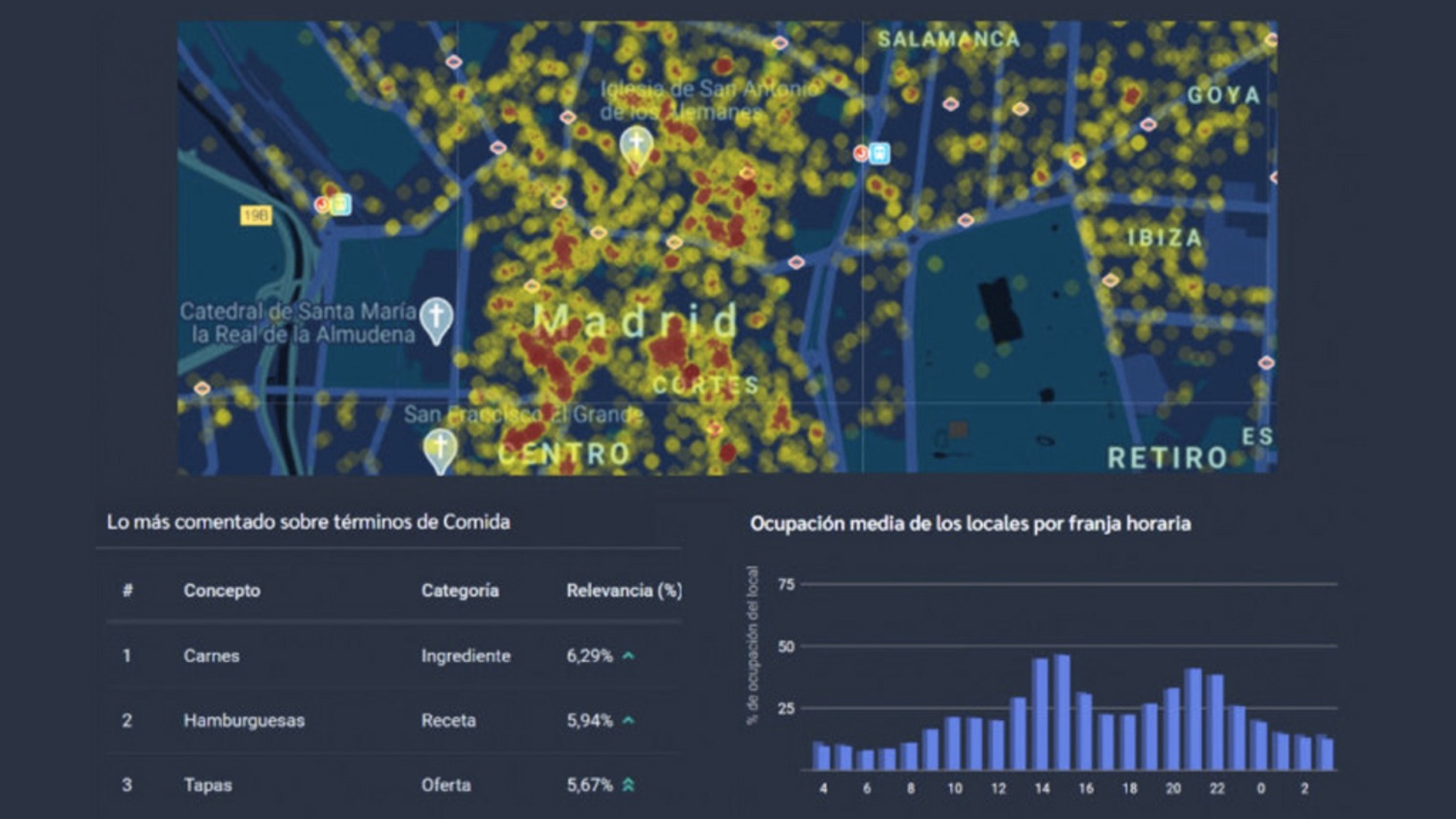Does it make more sense to open a pizza or a sushi restaurant in Madrid city center? Which restaurant segments in Valencia have best survived the Covid-19 crisis so far? How strong is the competition between breweries in Barcelona? All of these are questions that Delectatech can answer.
By deploying AI, NLP and big data mining, the Barcelona-based startup gathers a massive amount of food-sector data – customer reviews, food blogs, recipes, selling prices and more, locally and globally – in its SaaS, which provides analysis of the competitive landscape and real-time recommendations to restaurants and their suppliers.
Over a longer period, Delectatech advises clients how they could adapt their strategy based on market trends and forecasts. “Contrary to what people might think, this sector is very complex,” Delectatech CEO and co-founder Xavier Mallol said, noting that F&B operators work amid intense competition and high cost risks because of the perishable nature of food.
Yet, “there is still the idea that setting up a restaurant is something simple that does not need a business strategy,” he pointed out. “The lack of professionalization and awareness of the need to ’stay up-to-date’ is still a key issue in the sector.”
The value of actionable information has proven it is worth its weight in gold especially since Covid-19 struck. Last year, sales in the Spanish F&B sector – which, alongside tourism, was the most badly hit by the pandemic – slumped 42% on average compared with 2019, and one in every five restaurants closed down. In a move to help the beleaguered sector, Delectatech offered its FoodRadar for free from September to the end of 2020.
Food suppliers using FoodRadar simply need to select in the platform the market segment they wish to target, such as vegetarian restaurants. The SaaS then provides a “heat map” showing areas in a city with a high volume of sales for that specific segment. It also provides related KPIs and analytics, for example, the percentage of vegetarian restaurants that remained open during the pandemic. Furthermore, it helps food suppliers identify key establishments that represent the best business opportunity for that specific segment and geographic area.
“This pandemic has increased interest in information in the sector, that was previously thought to be less important," Mallol said. “Five months ago, nobody asked us which restaurants had terraces or large-capacity rooms. Now everyone needs to know what is happening in real time."
F&B sector heavyweights
According to the company, there are currently several business intelligence solutions that cater to the food and restaurant sector. However, most are expensive and require time to be integrated into clients’ systems.
Delectatech seeks to offer a solution that is affordable and efficient, presenting well-structured data sets that include all the available information on food, restaurants, and gastronomy in general. The AI-based system improves over time, generating more complete and valuable recommendations.
The idea of Delectatech was born in 2013 from a partnership between two senior IT engineers with extensive experience in web applications. Marc Guerrero was working on his final master’s thesis with the idea of building a virtual marketing consultant that would automate business tasks for restaurants. Mallol, meanwhile, was working on software that provided ad-hoc and AI personalized recommendations to users and business clients.
The pair decided to merge these two concepts, bootstrapping with an initial capital of €3,000 in September 2014 to co-found Delectatech. The startup went on to win financing from the 40-year-old Luxembourg-based fund CVC Capital Partners and multiple public grants.
Four leading executives in the Spanish F&B industry also joined Delectatech as strategic partners. They are: Ignasi Iglesias, a business advisor with over 14 years of experience as supply chain director in The Eat Out Group, one of the main modern restaurant groups in Spain; Carme Juanes, who until last year held the role of ESADECREAPOLIS retail forum director; Sonia Gasa, marketing expert for the restaurant retail sector; and Ignasi Ferrer, senior management advisor, angel investor and social entrepreneur.
Low-pricing model
The company has also continued to refine its product, improve its technology and expand its data sets. It currently offers FoodRadar for F&B food suppliers, and Delectame Analytics for restaurants and catering chains and groups.
Its SaaS model is a freemium one. Clients pay monthly subscription fees based on how wide they want coverage to be, for instance, the number of eateries or the geographical areas where one’s competitors are located. Alternatively, they can choose based on depth, relating to the details of information received.
Delectatech’s strategy also involves keeping its pricing low to enable rapid expansion, i.e., maximize the number of F&B operators it attracts while making sure every eatery uses its SaaS as much as possible, all to boost the breadth and depth of its data sets.
In 2016, Delectatech was selected as one of 10 disruptive companies in the ESADE-EMPENTA business acceleration program, developed by ESADECREAPOLIS in collaboration with Catalonian government offices ACCIÓ and Start-Up Catalonia. A year later, the startup won the Pascual Startup award in the retail category and this program, sponsored by IBM and Telefónica Open Future, has given the startup even more visibility in the space.
Delectatech also signed collaboration agreements with two leaders in the Spanish food and restaurant ecosystem, the Basque Culinary Center and the Alicia Foundation, a social entity boosting technological innovation in food and kitchens.
The company currently plans to strengthen its presence locally and to further enrich its data sets in order to focus on international expansion, starting with the UK and Italy.










